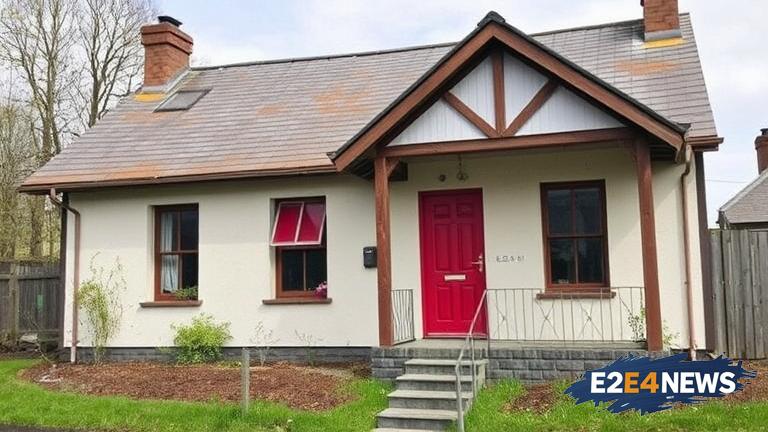In a bid to breathe new life into rural areas and tackle the pressing issue of housing shortages, a Leitrim councilor has put forth a proposal to provide property owners with a substantial incentive to refurbish derelict homes. The councilor suggests that offering at least €100,000 to property owners could be a viable solution to revitalize abandoned and neglected properties, transforming them into habitable and comfortable homes. This initiative is expected to have a positive impact on the local community, as it would not only provide more housing options but also contribute to the aesthetic appeal and character of rural areas. By refurbishing derelict homes, the councilor hopes to attract new residents, boost local economies, and create a sense of community and belonging. The proposal has sparked interest and debate among local residents, with some expressing enthusiasm for the potential benefits and others raising concerns about the feasibility and potential drawbacks of such a scheme. Proponents of the initiative argue that it could be a game-changer for rural areas, where derelict homes often stand as a testament to neglect and decay. On the other hand, critics point out that the proposed incentive may not be sufficient to cover the costs of refurbishment, particularly for properties that have fallen into severe disrepair. Despite these concerns, the councilor remains optimistic that the proposal could be a stepping stone towards revitalizing rural areas and addressing the housing crisis. The initiative is also seen as an opportunity to preserve the cultural heritage and historical significance of old homes, which are often an integral part of the region’s identity. Furthermore, the refurbishment of derelict homes could lead to the creation of new jobs and stimulate local economic growth, as contractors, builders, and other professionals would be involved in the renovation process. In addition, the proposal could help to reduce the number of derelict homes, which are not only eyesores but also potential safety hazards. The councilor’s proposal has also highlighted the need for a more comprehensive approach to addressing the issue of derelict homes, including measures to prevent properties from falling into disrepair and providing support for property owners who may be struggling to maintain their homes. As the debate surrounding the proposal continues, it is clear that the issue of derelict homes is complex and multifaceted, requiring a nuanced and multifaceted solution. The councilor’s initiative has sparked a necessary conversation about the importance of preserving and revitalizing rural areas, and the potential benefits of refurbishing derelict homes. While there are challenges to be addressed, the proposal has the potential to make a positive impact on the community and contribute to the region’s growth and development. In the coming weeks and months, it will be interesting to see how the proposal unfolds and whether it will gain traction and support from local authorities and residents. The fate of the proposal remains uncertain, but one thing is clear: the issue of derelict homes is an important one that requires attention, creativity, and a commitment to finding solutions. As the region continues to grapple with the challenges of rural decline and housing shortages, innovative proposals like the one put forth by the Leitrim councilor are essential to sparking meaningful change and improvement. The proposal has also raised questions about the role of government and local authorities in addressing the issue of derelict homes, and the need for a more coordinated and effective approach to tackling this complex problem. Ultimately, the success of the proposal will depend on the ability of stakeholders to work together and find common ground, as well as the willingness of property owners to take advantage of the incentive and refurbish their homes. With the right support and resources, the refurbishment of derelict homes could be a powerful tool for revitalizing rural areas and creating a brighter future for local communities.





